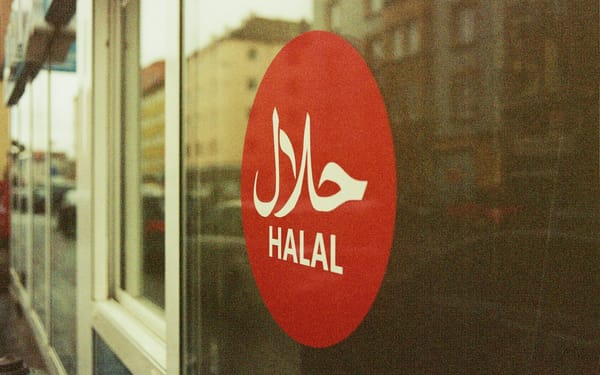Principles and Products of Islamic Insurance

Islamic Insurance is an aspect of Insurance that's based on mutuality, cooperation, shared responsibility and common interest. Insurance exists since most human activities are subjected to the risk of loss due to unforeseen circumstances,
It's been practiced for centuries and still exists today. Islamic Insurance is also called Takaful. Takaful came from the ancient Arab Tribes as a pooled liability that binds those who commit offenses against members of another tribe to pay compensation to the victims. The principle also extends to several aspects of life. For example, in sea trade, the participants are obliged to contribute funds to cover any mishap that happens on sea voyages.
In Tafakul, the Policyholders are joint investors involved with the insurance vendor who acts as a manager for the holders. The Policyholders are liable to share the investment's pool profits and losses. There's no fixed positive return, as that can resemble Riba - which is prohibited.
Islamic Insurance follows the law of Shariah and is approved by Muslim scholars. There are some health, life, and general Islamic Insurance plans for the Muslim society.
Principles of Takaful
In Islamic Insurance, the participants contribute funds to support one another, with each participant contributing enough to cover expected claims.
Here's a summary of the principles:
- Policyholders cooperate for their common expectations
- Each holder pays a part of the contribution as a donation to help others
- The holders share the losses and liabilities in accordance with the community pooling system
- There's no uncertainty regarding subscription and compensation.
- Islamic Insurance doesn't involve gaining at the end expense of others.
In theory, Tafakul is cooperative Insurance where the members contribute a sum of money to a shared pool. The purpose of this system is to bear and share one another's burdens.
Why You Should Choose Islamic Insurance Over Conventional Insurance
The majority of Muslim scholars have opposed the idea of conventional insurance since it doesn't conform to Shariah law. Here are some of the reasons.
- Conventional Insurance includes an element of gharar (uncertainty).
- Conventional Insurance is based on Interest (Riba), while Tafakul is based on the concept of Tabarru.
- Tabarru is an Islamic model where a percent of the participants' contributions serve as donations.
- Conventional Insurance is a form of gambling.
- Conventional Insurance enterprises are motivated by profits, while Islamic Insurance companies are non-profit organizations.
- The Policyholders in a conventional insurance company have no say in the elections of the directors of the company, while it's otherwise for Islamic insurance companies.
Models of Tafakul
In conventional Insurance, the policies consist of the Policyholders and the insurance company. The holders pay the company to insure them against risks. However, it's different in Tafakul. The participants are both the holders and the company. Several models of contracts are used to manage the Tafakul contract. They include:
Agency (Wakalah)
The Wakalah model involves the insurance company becoming an agent for the Tafakul contract. The agent will manage the funds for the participants while they pay a certain amount of fee for their services.
Mudharabah
The Mudharabah model involves a profit-sharing agreement between the Takaful participants and the contract manager. The Takaful participants provide the capital in the form of premium payments. Meanwhile, the contract manager provides managerial skills to invest the capital in Sharia-compliant investments.
Hybrid of Wakalah and Mudharabah
This model combines the previous two. The Takaful manager gets a Wakalah fee and a portion of the profit from Takaful fund investments.
Popular Islamic Insurance Companies
1. JamaPunji
JamaPunji is an initiative of the Securities and Exchange Commission of Pakistan, located in Islamabad. It was established to help investors make the right decisions. JamaPunji aims to expose the masses to financial markets and different products in society.
The company helps investors to take adequate measures before signing contracts with financial services providers and improve investors' confidence.
2. The Islamic Insurance Company
The Islamic Insurance Company owns the most significant share of the Takaful industry in Jordan. It's focuses on the Wakalah model of Takaful and complies with the Shari'a law. The company aims to spread the concept of Takaful wide and beyond and to establish more companies in different regions. It offers several types of Insurance like fire, motor, equipment, marine transportation, householder, etc.
3. AMAN
AMAN is an Islamic Insurance company in Dubai, UAE. It's mainly engaged in providing insurance and reinsurance services in accordance with the Shariah principles. It aims to offer an outstanding range of services that support the Muslim community. The company offers Insurance like life and medical products, motor, fire, engineering, credit, healthcare, etc.
4. Salama cooperative
Salama Cooperative is one of the leading Takaful players. The company is famous for its excellent services and the security it provides for investors. The company aims to be the leading provider of customized insurance solutions supported by well-built financial resources.
5. Zurich Malaysia
Zurich is a reputable insurance company in Malaysia that offers different Takaful solutions. The insurance plans include General, Life, medical, savings, etc. The company has several networks across 40 different locations, so it's loyal to its customers.
Bottom Line
Islamic insurance is a balance between halal and conventional insurance. It has been practiced for many years. Islamic insurance are for Muslims since it follows the Shariah law unlike the conventional insurance. This article explained the meaning of Islamic insurance, the principles, products, and companies. You can go through and implement the insurance principles.





